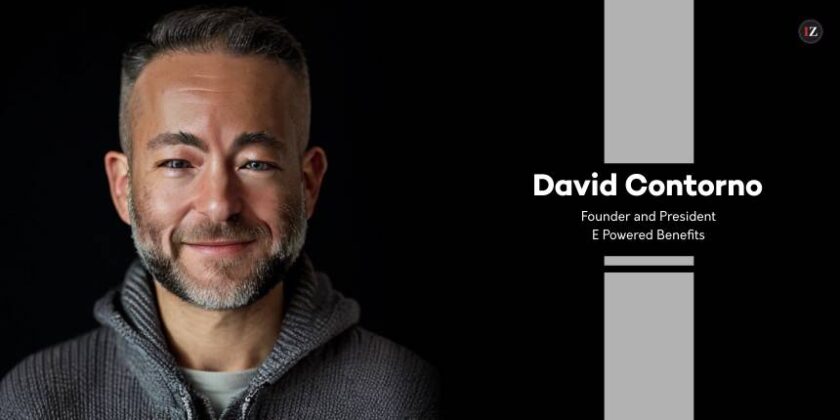Today, the healthcare industry around the world is at a turning point. Technological advancements, changes in the healthcare delivery and payment models, alongside the outbreak of the COVID-19 pandemic are the major reasons fueling the changes in the healthcare landscape. These evolving circumstances in the healthcare sector have posed numerous challenges for today’s healthcare leaders.
Distinguishing from his fellow leaders, Christian Schuhmacher (Chief Executive Officer at King’s College Hospital London–UAE) has thrived during this crisis as one of the prominent leaders in the region. Christian is a seasoned healthcare executive management professional with combined experience impacting corporate performance through skillful development, enhancement, and orchestration of innovative business strategies. He is a highly-skilled director with experience focused on strategic planning and creative solution development for multiple product/service styles.
The Captivating Journey
Christian studied law in his home country Switzerland and started working in healthcare after finishing University. From University hospitals, he moved to private healthcare and had the privilege to run several different hospitals and healthcare groups. While working there, he pursued an Executive MBA from the University of Toronto and University of St. Gallen (HSG) Switzerland. Christian believes that the inspiration behind working in the healthcare industry is the fact that its products benefit the society as well as individuals. “As clearly shown in the last 14 months, healthcare is a key industry to facilitate the growth and prosperity of nations and societies. Being able to play a part in this exciting area is the inspiration and the motivation to work in healthcare,” he asserts.
“
At King’s, our mission is to serve the community by empowering our team to earn the trust of our patients and their families with our outstanding, compassionate, and personalized care.
The Pursuit of Making a Difference
King’s College Hospital London in Dubai started with Jumeirah Medical Center in 2017 and the Dubai Marina Medical Center in 2018 before the state-of-the-art hospital located in Dubai Hills was launched in 2019. However, the original King’s College Hospital in the UK was established in Holborn, London in a former workhouse in 1840. Initially used as a training facility for students, the hospice quickly developed into a major hospital—spreading its wings outside the UK into the UAE.
UAE’s strong ties with the King’s College Hospital date back to 1979 when the nation’s founder, His Highness Sheikh Zayed bin Sultan Al Nahyan, provided a donation that helped establish the King’s liver research Center, which is now amongst the top three specialist liver centers in the world. King’s UAE provides a visiting Doctor’s program where highly-qualified experts visit the college to offer world-class evidence-based medicine—a great addition to the multidisciplinary teams it already has on the ground.
“Our values are grounded on making a difference in our patients’ healthcare experience through a multi-disciplinary team of experts relying on evidence-based medicine, which includes diagnostics, treatment, and management of ailments at a level at which you would receive if you went to King’s College Hospital in the UK,” says Christian.
Culture of Open Communication
Christian adds that the King’s culture is based on open communication. The college keeps the lines of communication open by sharing information regardless of how small it may seem. “We also encourage employees to share their ideas with us, in addition to having a team in place that focuses on employee engagement and happiness,” adds Christian. Moreover, as the mental strength and wellbeing were impacted greatly due to the pandemic, the King’s opened communication channels whereby the team communicates freely with some of the in-house doctors as well as the external psychologists for support and guidance.
A Shift towards Telehealth
Since the onset of the COVID-19 pandemic, the healthcare industry experienced a drop in elective surgeries and medical tourism, alongside outpatient departmental footfall. This drop caused an exponential increase in demand for telemedicine—an established health-tech service line that was not commonly utilized by most healthcare facilities. The King’s has since adapted and deployed this model of service delivery to patients—which has become an integral service line and is available for all specialties.
“After the pandemic, we will continue investing, upgrading, and using advanced telemedicine solutions, at least for no-emergency and non-life-threatening cases,” adds Christian. He believes that patients will continue to have access to reliable medical care from diagnostics and treatment to online prescriptions from the comfort of their home, and at their convenience.
To thrive in the years to come, King’s has integrated telehealth into other services such as home healthcare where its physicians go to the patients’ houses to provide them with the required medical services including routine checkups, administering medications, and collection of medical samples for diagnostic purposes. The hospital also implemented safety precautions throughout its facilities including the introduction of work from home for non-clinical staff which has gone a long way in decongesting the environment for social distancing purposes for the safety of patients and non-patients.
Embracing Collaboration and Coordination
According to Christian, during the pandemic, UAE has set an example of how unified policies and infrastructures across the public and private healthcare sectors can work towards the delivery of a full range of services and as a result improve health outcomes. He adds that the COVID-19 Central Command Center—where all initiatives, challenges, and learnings are translated into practice and unified policies—has played a key role in commanding all these efforts in the healthcare sector. He believes that the long-term positive effects would be embracing this collaboration and coordination between all players in the wide healthcare field. “This is key to effectively and efficiently tackling any challenge, and especially one on the scale of the current pandemic,” he adds.
A Flurry of Opportunities
While the restrictions on elective surgery to be involved in Dubai’s answers to fight the pandemic has impacted the King’s College Hospital on a short-term basis, it will not have a lasting impact on the hospital. As Dubai is open and accessible, medical tourism will rebound strongly in the months to come. Christian envisions numerous opportunities for growth in 2021 and beyond for King’s in Dubai and beyond.




